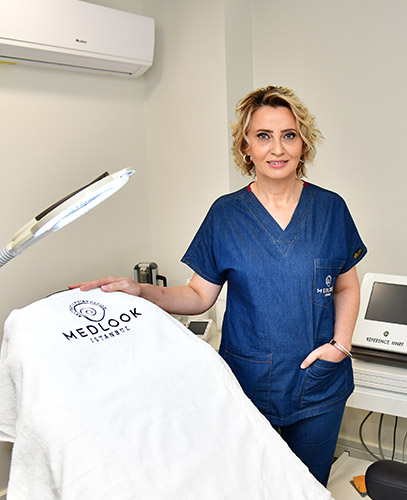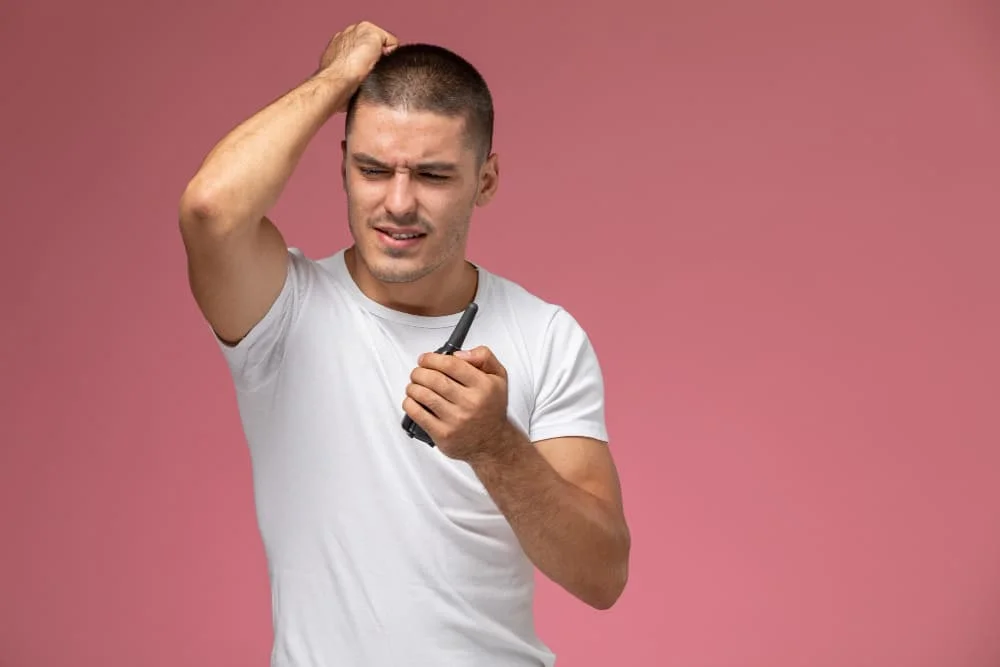
Creatine is a widely used supplement among athletes and fitness enthusiasts, celebrated for its proven ability to boost strength, power and muscle growth. However, as its popularity has grown, so too has a lingering question: does creatine cause hair loss? This concern has fueled debates, leading many to wonder if improving their physical performance might come at the expense of their hair.
In this article, we’ll explore the scientific research behind this claim to determine whether there’s a genuine link between creatine and hair loss. Our goal is to provide a clear and unbiased perspective, allowing you to make informed decisions about your health.
What is Creatine and How Does It Work?
Creatine, a naturally occurring compound stored predominantly in your muscles, with smaller amounts found in the brain, plays a crucial role in energy production, particularly during short, high-intensity activities. While widely praised for enhancing performance, concerns like creatine hair loss have prompted questions about its broader effects. Essentially, creatine acts as a rapid energy reserve for your muscles, enabling them to perform at peak levels during demanding efforts.
In the body, creatine contributes to the production of adenosine triphosphate (ATP), the primary energy source for cells. When you supplement with creatine, it boosts the phosphocreatine stores in your muscles, allowing for faster ATP replenishment. This enhanced energy availability lets you push harder and train for longer durations.
By improving training capacity, creatine supplementation can lead to increased strength, power, and muscle growth, making it a favorite among athletes, bodybuilders, and fitness enthusiasts. While small amounts of creatine are found in foods like red meat and fish, supplementation provides a more efficient and concentrated way to optimize muscle creatine levels.
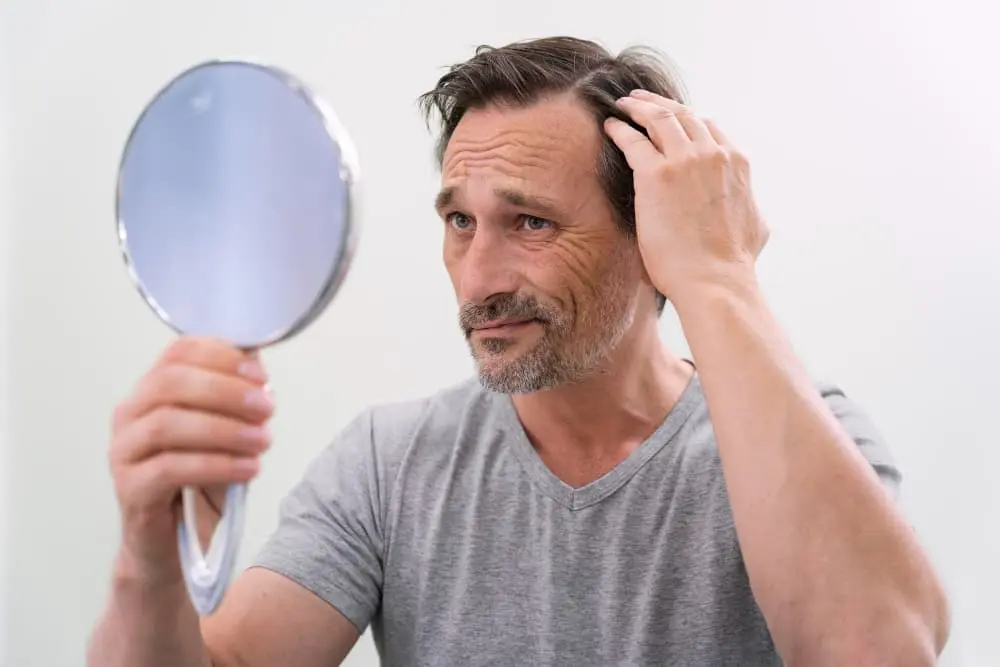
The Link Between Creatine and Hair Loss: Examining the Concerns
While creatine is widely praised for its performance-enhancing benefits, concerns about its potential connection to hair loss persist. This worry largely centers around the idea that creatine hair loss may be linked to an increase in dihydrotestosterone (DHT)—a hormone derived from testosterone. DHT is known to play a significant role in male pattern baldness by causing hair follicles to shrink over time.
Does creatine cause hair loss?
There is currently no definitive scientific evidence proving that creatine directly causes hair loss. This concern largely stems from a 2009 study involving rugby players, which observed a potential increase in DHT levels after creatine supplementation. However, this study had notable limitations:
- A small sample size
- No direct measurement of hair loss
- Findings that have not been replicated in other research
Other studies exploring creatine’s effects on hair or DHT levels have yet to provide conclusive evidence to support the claim that creatine causes hair loss.
Does 5g creatine increase DHT?
The 2009 study noted an increase in DHT after participants completed a loading phase of 25 grams per day, followed by a maintenance dose of 5 grams daily. However, it’s important to highlight:
- Research on whether 5g of creatine alone (without a loading phase) increases DHT is extremely limited.
- Not everyone experiences a DHT increase after taking creatine.
- There’s no evidence that any DHT changes caused by creatine are significant enough to induce or worsen hair loss.
More extensive and long-term studies are needed to determine if a clear link exists between creatine, DHT levels, and hair loss.
The Takeaway
While the possibility of a connection between creatine and hair loss mediated by DHT has been suggested, the current evidence is inconclusive. For most people, creatine supplementation is unlikely to have a noticeable impact on hair health. If you have specific concerns about hair thinning or DHT, consulting a healthcare professional is always a prudent step.
Understanding DHT and Its Role in Hair Loss
Dihydrotestosterone (DHT), a powerful androgen hormone derived from testosterone, is often discussed in relation to issues like creatine hair loss. While testosterone is well-known for driving the development of male physical traits, DHT has more specialized functions, particularly in areas like prostate health and hair growth patterns.
Questions like does creatine cause hair loss often arise from concerns about DHT, as this hormone can significantly contribute to hair loss in individuals genetically predisposed to male pattern baldness. This occurs when DHT binds to receptors in scalp hair follicles, initiating a process known as miniaturization.
What Happens During Miniaturization?
- Hair Follicle Shrinkage: DHT causes hair follicles to gradually shrink in size.
- Thinner and Shorter Hair: As follicles shrink, the hair they produce becomes finer and shorter.
- Shortened Growth Cycle: DHT shortens the anagen (growth) phase of the hair cycle, reducing the time hair spends growing.
- Hair Production Stops: Over time, affected follicles may cease producing hair altogether, leading to a receding hairline or thinning at the crown—classic signs of male pattern baldness.
The Role of Genetics
Sensitivity to DHT varies widely among individuals and is largely determined by genetics. Factors that influence susceptibility include:
- Receptor Sensitivity: Some people’s hair follicles are more responsive to DHT, making them more prone to hair loss.
- DHT Levels: Even with relatively low DHT levels, those with heightened follicle sensitivity may still experience significant hair thinning.
- Genetic Predisposition: If you have a family history of hair loss, your likelihood of being affected by DHT increases.
While DHT plays a significant role in male pattern baldness, not everyone with high DHT levels will experience hair loss. Conversely, individuals with low DHT levels can still be affected if their follicles are highly sensitive. Understanding your genetic predisposition and how DHT interacts with your hair follicles can provide valuable insights into your hair health.
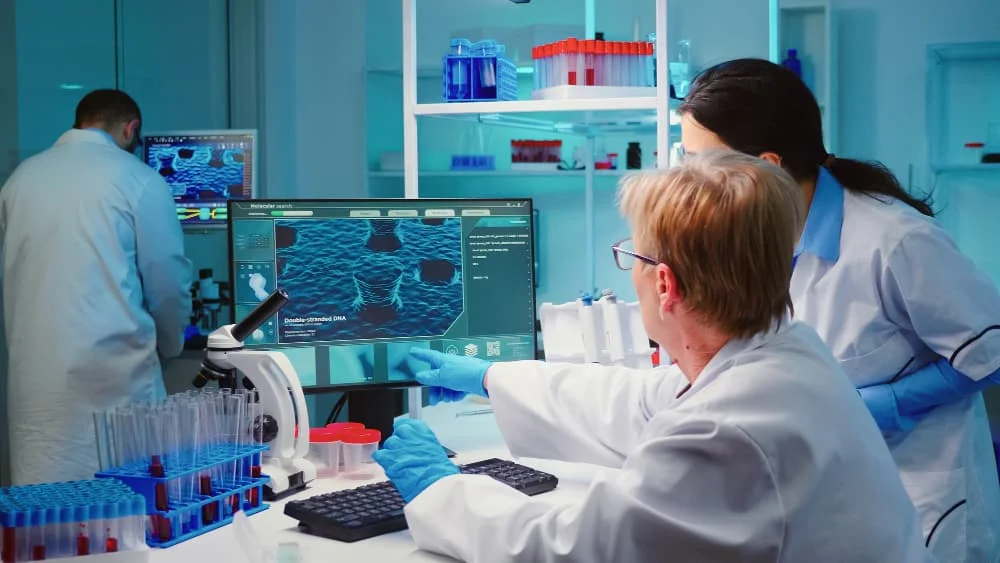
Analyzing the Research: Does Creatine Really Cause Hair Loss?
The connection between creatine hair loss and supplementation has sparked debate, with anecdotal reports fueling concerns. However, a closer examination of the scientific evidence paints a more nuanced picture. While some worry about does creatine cause hair loss due to its potential link with DHT levels, research remains inconclusive, and further studies are needed to clarify this association.
Evaluating the Evidence
The primary study often referenced is a 2009 study involving rugby players. This research observed an increase in DHT levels after creatine supplementation, leading to speculation about a potential link to hair loss. However, the study has notable limitations:
- Small Sample Size: Only 20 participants were included.
- No Hair Loss Assessment: The study measured DHT levels but did not track actual hair loss.
- Short Duration: The study spanned just three weeks, insufficient for assessing long-term effects.
- High Doses: Participants underwent a high loading dose of 25g daily, which is far above the typical use for most individuals.
Further Research
Subsequent studies have not consistently replicated these findings. Many investigations into creatine supplementation, particularly its effects on athletic performance, have reported no significant changes in DHT levels and no documented instances of hair loss.
Current Consensus
There is currently no conclusive scientific evidence to support a direct link between creatine supplementation and hair loss. The concerns raised by the 2009 study remain speculative due to its limitations, and the absence of corroborating research suggests that any connection is likely weak or indirect.
Other Factors to Consider
Hair loss is influenced by a variety of factors, including:
- Genetics: The most significant determinant in hair thinning or male pattern baldness.
- Hormones: Beyond DHT, overall hormonal balance plays a role.
- Age and Stress: Both are common contributors to hair thinning.
- Underlying Conditions: Medical issues, such as nutritional deficiencies or scalp conditions, may exacerbate hair loss.
Focusing solely on creatine as a cause of hair loss without considering these broader factors oversimplifies a complex issue.
Is Hair Loss from Creatine Permanent?
Current evidence suggests that any hair thinning possibly linked to creatine use is likely temporary rather than permanent. If creatine were to contribute to hair loss indirectly—such as through a minor increase in DHT levels—this effect would most likely subside once supplementation is discontinued. This aligns with the ongoing question: does creatine cause hair loss, as research has yet to establish a definitive connection.
- Hair Growth Resumes: Hair follicles affected by temporary changes in hormone levels should return to their normal growth cycle once creatine is no longer in the system.
- Individual Responses Vary: While some individuals might notice minor changes in hair thickness, others may experience no visible effects at all.
What Should You Do if You Notice Changes?
If you observe any changes in your hair, whether related to creatine or not, it’s important to address them proactively:
- Consult a Specialist: Speak with a dermatologist or hair restoration expert to rule out other underlying causes of hair thinning, such as genetics, stress, or nutritional deficiencies.
- Consider Pausing Supplementation: Temporarily stop taking creatine to see if your hair condition improves.
- Focus on Overall Hair Health: Maintain a balanced diet, manage stress levels, and consider using hair care products designed to support hair growth and thickness.
While research on creatine hair loss remains limited, there’s no conclusive evidence to suggest that any hair loss potentially linked to creatine use would be permanent. If you’re concerned, consulting with a professional, such as the experts at Istanbul Hair Institute, can help address your questions and provide personalized guidance.
Minimizing Potential Risks: How to Prevent Hair Loss from Creatine
Although the connection between creatine and hair loss is not definitively proven, adopting a cautious approach can help alleviate concerns. Here are practical steps to minimize any potential risks:
How to Prevent Hair Loss from Creatine
- Stay Hydrated
Creatine can draw water into muscle cells, so maintaining proper hydration is essential. Drinking plenty of water not only supports overall health but may also help minimize any indirect effects on your hair. - Choose High-Quality Supplements
Select creatine from reputable brands that offer micronized creatine monohydrate. This form is well-studied, easily absorbed, and generally free from unnecessary additives. Look for products that have undergone third-party testing for quality and purity. - Follow Recommended Dosages
Adhering to the standard dosage guidelines—typically 3-5 grams daily for maintenance—can reduce unnecessary strain on your body. Avoid high loading phases unless necessary, and consult a healthcare professional if you’re unsure about your intake. - Monitor Your Hair Health
Keep an eye on your hair’s condition while taking creatine. If you notice changes like increased shedding or thinning, consider stopping supplementation and consulting a healthcare provider to rule out other potential causes. - Consider Creatine Cycling
While not mandatory, cycling creatine (e.g., using it for 6-8 weeks followed by a 2-4 week break) is a strategy some individuals prefer. This approach can give your body periodic breaks and may help alleviate concerns about long-term effects.
By taking these precautions, you can continue to benefit from creatine supplementation for performance and muscle growth while addressing any concerns about its potential impact on hair health. While the risk remains largely theoretical, staying informed and proactive is the best way to safeguard both your fitness goals and hair health.
Alternatives to Creatine: Are There Better Substitutes?
For those concerned about the debated link between creatine hair loss or seeking alternatives, there are other supplements that offer performance-enhancing and muscle-building benefits without a potential association with DHT.
While creatine is one of the most extensively studied and effective supplements, these alternatives target different mechanisms and may align with specific goals:
- Beta-Alanine
Beta-alanine boosts muscle carnosine levels, helping to buffer lactic acid build-up during high-intensity exercise. This leads to improved endurance and the ability to push through longer, more challenging workouts, indirectly supporting muscle growth. - Citrulline Malate
Known for improving blood flow, citrulline malate enhances nutrient and oxygen delivery to working muscles. It also helps reduce fatigue and supports nitric oxide production, which can improve performance during extended or intense training sessions. - Betaine (Trimethylglycine)
Betaine has shown promise in increasing strength, power output, and muscle protein synthesis. It works through pathways distinct from creatine and does not impact DHT levels.
Choosing the Right Alternative
When considering these options, it’s important to evaluate your specific goals and any concerns about potential side effects. For instance, if you’re asking does creatine cause hair loss, understanding the current research and exploring alternative supplements may help you make a more informed decision. Keep in mind:
- Effectiveness: Creatine remains the gold standard in terms of research-backed performance benefits. Alternatives like beta-alanine and citrulline malate have supportive evidence but less extensive study.
- Individual Responses: Supplements work differently for everyone. Experimentation may be needed to find what works best for your body.
- Consult a Professional: A healthcare provider or dietitian can help you choose the best supplement to meet your performance goals while addressing any concerns about hair health.
While no alternative matches creatine’s broad benefits and extensive research, these substitutes may offer viable options for individuals seeking a different approach. Evaluate your priorities, and make an informed choice tailored to your needs.
Recent Posts
-
 Does Creatine Cause Hair Loss? Separating Fact from Fiction21 Jan 2025
Does Creatine Cause Hair Loss? Separating Fact from Fiction21 Jan 2025 -
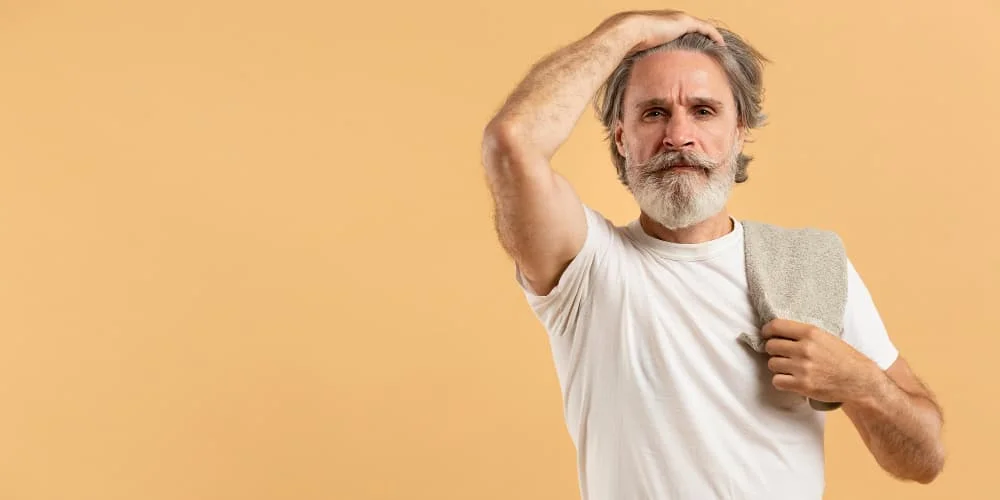 How Long Does Hair Transplant Last? A Comprehensive Guide to Long-Term Results15 Jan 2025
How Long Does Hair Transplant Last? A Comprehensive Guide to Long-Term Results15 Jan 2025 -
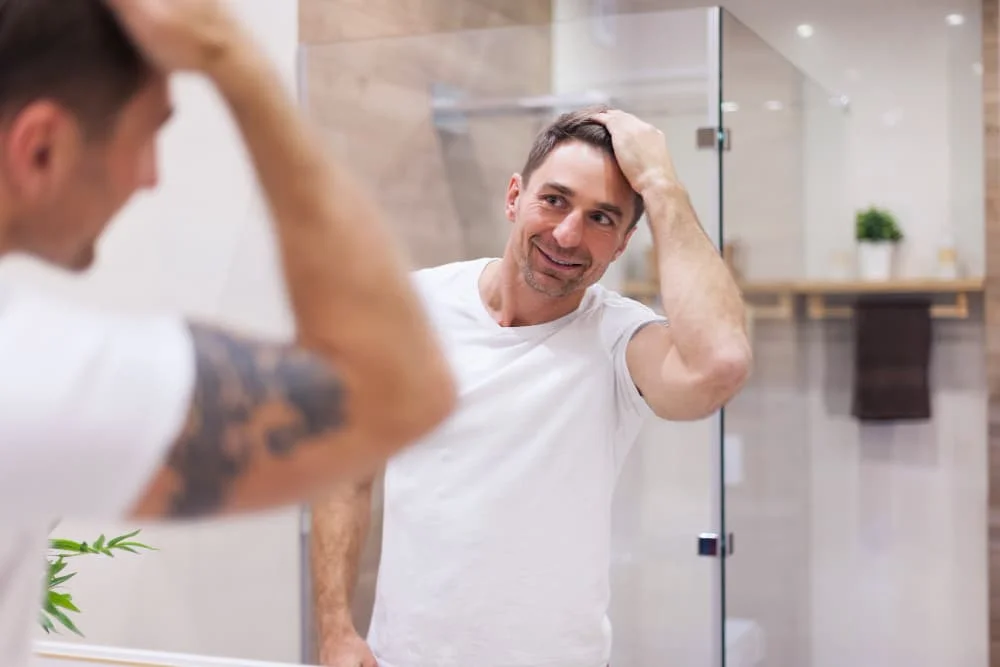 Hair Loss After Hair Transplantation: Is It Normal and What to Do?13 Jan 2025
Hair Loss After Hair Transplantation: Is It Normal and What to Do?13 Jan 2025 -
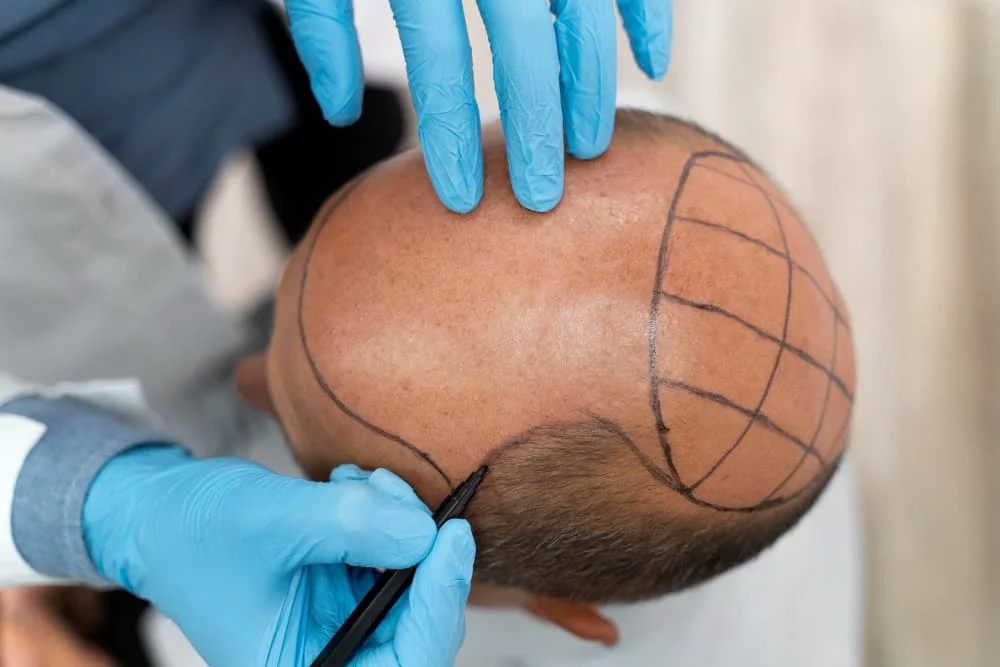 Donor Area in Hair Transplant: All You Need to Know - Istanbul Hair Institute06 Jan 2025
Donor Area in Hair Transplant: All You Need to Know - Istanbul Hair Institute06 Jan 2025 -
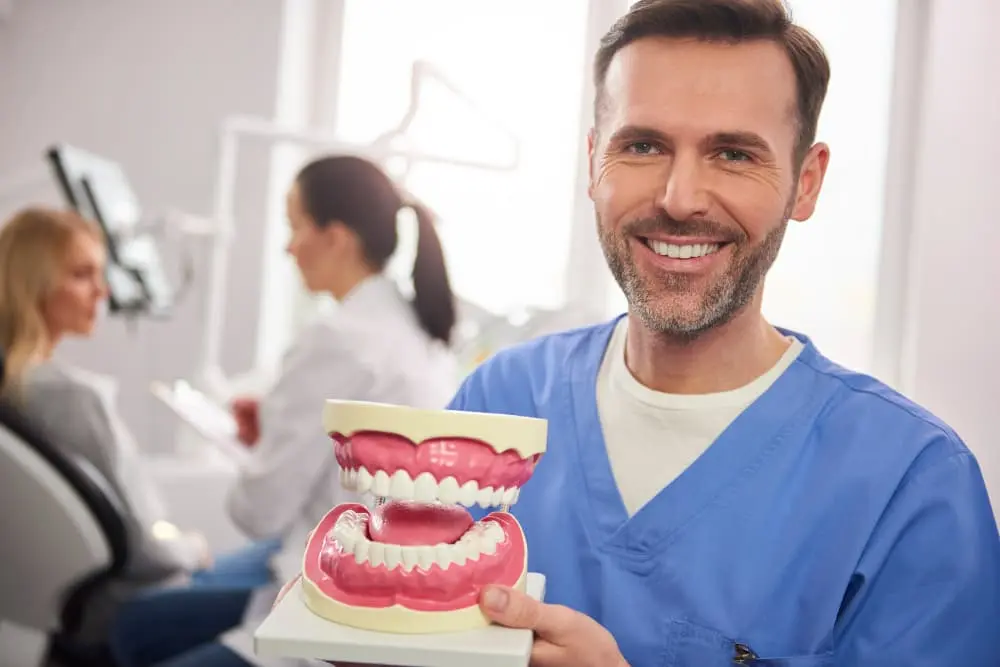 The Connection Between Oral Health and Overall Health03 Jan 2025
The Connection Between Oral Health and Overall Health03 Jan 2025
